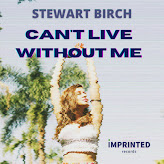I bought a large collection of Jazz CDs recently. You'll
hear more about them shortly, but one of the popular artists with the original owner
was Stan Kenton. Kenton was a big band leader and pianist. To be honest I don't
like his music much, but he was very popular at a certain point in the late
40s. In 1947 he formed a new, larger band than his previous on to present
"Concerts in Progressive Jazz". The album that resulted from this was
called 'A Presentation of Progressive Jazz'. Reviews included "jerry-built
jumble of effects and counter-effects" and "this album presents very
little that can justifiably be called either jazz or progressive.
"Billboard said it was "as mumbo-jumbo a collection of cacophony as
has ever been loosed on an unsuspecting public.”

Now in fairness Kenton’s music can best be described as
bombastic at best. And this got me thinking, again, about the use of the word “progressive”
in music. Google “what is progressive rock” and you get; “a style of rock music
popular especially in the 1970s and characterised by classical influences, the
use of keyboard instruments, and lengthy compositions.”
Google “progressive music” and you land on a Wikipedia entry that
talks about “progressive music which “usually
synthesizes influences from various cultural domains, such as European art
music, Celtic folk, West Indian, or African. It is rooted in the idea of a
cultural alternative and may also be associated with auteur-stars and concept
albums, considered traditional structures of the music industry.” Ok so once
you’ve picked your way through that lot you may be fairly confused, I certainly
am, and be no closer to a definition of what progressive means. When it comes
to Jazz the article decides that Progressive Jazz “originated in the 1940s with
arrangers who drew from modernist composers such as Igor Stravinsky and Paul
Hindemith. Its "progressive" features were replete with dissonance,
atonality, and brash effects. “ By now you may be starting to get tired of the
rather pompous style of the Wikipedia author, I certainly am, and be thinking
that Progressive Jazz probably should be more about Ornette Coleman, John
Coltrane and Sun Ra – who all came along rather later and whose innovations
belong to the late 50s and 60s.
Now I started avoiding Prog magazine’s mostly quite interesting
Facebook group because of the interminable question, is XXXX prog? Looking now
I find that the site rules now include “Please do not post
"Is XXXX prog?" questions, lets focus on interesting discussions.”
Great I can follow it again. Prog Magazine itself does include a good bit of
music that follows the definition  of ”progressive music” we saw above. Now of course
they include the old guard, ELP, Yes, Pink Floyd, they want to sell magazines
to old folks. But they go far enough off piste to include music that stretches
genre boundaries pretty close to breaking point. Which is great. If you assume
(as I do) that the first proper progressive rock album was ‘In the Court of the
Crimson King’ and then step off in to Van Der Graaf Generator and thence into
outer space then very little of what is called “Prog” is actually progressive, any
more than Stan Kenton was ”progressive” when it came to Jazz.
of ”progressive music” we saw above. Now of course
they include the old guard, ELP, Yes, Pink Floyd, they want to sell magazines
to old folks. But they go far enough off piste to include music that stretches
genre boundaries pretty close to breaking point. Which is great. If you assume
(as I do) that the first proper progressive rock album was ‘In the Court of the
Crimson King’ and then step off in to Van Der Graaf Generator and thence into
outer space then very little of what is called “Prog” is actually progressive, any
more than Stan Kenton was ”progressive” when it came to Jazz.
In the citations for the Wikipedia entry mentioned earlier
there is a note that quotes - Willis
2014, p. 219, “'Progressive' music can be seen as an experimentation with
alternative routes"; Moore 2004, p. 22, "What was so revolutionary
about this post-hippie music that came to be called 'progressive' ... was that
... the umbilical link between idiolect and style had been broken."; Macan
1997, p. 246, "the progressive rock of the 1970s had been 'progressive'
only as long as it pushed the stylistic and conceptual boundaries of rock
outwards" As all the references  circle back to the article they are quoted
in I can’t tell you anything about the books the quotes come from. But I think
we can start to get a definition of what the word “progressive” means to those
who ask the “is it Prog?” question on Facebook. It doesn’t in fact mean
progressive at all, and we should probably use “prog” to distinguish the music that
derives from 70s artists like ELP, Yes, and lesser mortals, and we can lump Mr Kenton
in with the as Prog Jazz, with the distinguishing feature that the music is
loud, grandiose, and bombastic. We can then reserve the “progressive” for music
that stretches boundaries, Coltrane, Miles or Cecil Taylor in Jazz, and King
Crimson, Tool, Frank Zappa, and maybe even The Velvet Underground in rock. Thoughts
on properly progressive rock acts happily received.
circle back to the article they are quoted
in I can’t tell you anything about the books the quotes come from. But I think
we can start to get a definition of what the word “progressive” means to those
who ask the “is it Prog?” question on Facebook. It doesn’t in fact mean
progressive at all, and we should probably use “prog” to distinguish the music that
derives from 70s artists like ELP, Yes, and lesser mortals, and we can lump Mr Kenton
in with the as Prog Jazz, with the distinguishing feature that the music is
loud, grandiose, and bombastic. We can then reserve the “progressive” for music
that stretches boundaries, Coltrane, Miles or Cecil Taylor in Jazz, and King
Crimson, Tool, Frank Zappa, and maybe even The Velvet Underground in rock. Thoughts
on properly progressive rock acts happily received.






